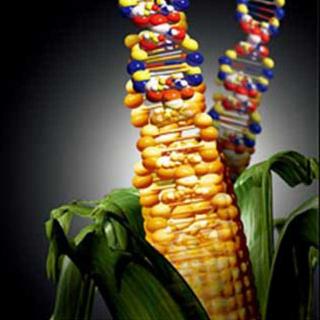
介绍:
In the past two months, Chinese government action in the field of Genetically Modified (or ‘GM’) crops has raised hopes that efforts to develop the nascent industry will resume, but experts say it may still be too early to celebrate.
Three varieties of GM corn and soybeans from the United States have recently received import approval, while the Ministry of Agriculture has renewed the expired safety certificates of China’s own GM crops.
However, while these new developments indicate a thawing of the government’s previous freeze on GM crop approvals since the 1990’s, there remain significant hurdles to overcome in correcting public misunderstandings of GM agriculture.
At a recent seminar on the industrialization of GM crops, Chen Zhangliang, Vice Chairman of the China Association for Science and Technology, said that the scientific community must communicate better with the public in order for these agricultural products to gain a commercial foothold.
As one of the nation’s leading experts on GM plants, Chen says the level of research by Chinese companies into genetically modified organisms (or ‘GMOs’) has reached international standards.
Development of GM technology is critical to Chinese agricultural development, says Chen. Domestic grain prices already exceed global standards, while labor costs and raw materials prices are on the rise, as soil pollution and water shortages exacerbate cost pressures.
According to Chen, the first step towards resolving this problem is to address production issues, including adding small plots of land to larger plots to enable labor mechanization. The next step is then upgrading agricultural technology, including the development of GMO programs.
Regardless of recent advances, the Chinese government remains highly cautious of GM crop industrialization. Widespread distrust of GM products has meant that the government has not approved any development since it first green-lighted commercial cultivation of GM cotton in the 1990s.
For Caixin Online, this is Nick Horton.
近两个月来,中国新批准三个品种美国转基因玉米、大豆进入中国,农业部也为中国自主研发的三种转基因粮食作物续签了此前到期的农业转基因生物安全证书,被认为是转基因作物商业化进程重启的信号。
然而,在1月29日举行的农作物生物育种产业化高层研讨会上,中国科学技术协会副主席陈章良表示,目前的情况对于行业公司来说还在冬天。
谈到中国目前关于转基因的讨论现状,他认为,目前民众对于转基因技术相关知识还不够了解,存在一些误解。
“科学普及工作很难,转基因这么难也不奇怪。”陈章良表示,在科协的工作中,他们认识到对于一些“敏感”问题,例如转基因食品安全、核电安全,PX安全问题,垃圾焚烧场等等,由于对于相关知识的不了解,普通大众一直无法认同相关设施和技术。
54岁的科协副主席陈章良曾是中国国内植物转基因领域研究的领军人物,也曾任中国农业大学校长,他认为,发展转基因技术对于中国农业至关重要。
“翻译成转基因,名字取得不好。”陈章良笑称,民众对于转基因技术的误解与研究前期工作的普及工作没做好有关,也许与当年工作时名字取的不好有关。
他举例称,许多通过转基因生产的药物和疫苗并未遭遇如此的抵制,“做药的转基因就没事,名字取成生物医药,大家听起来都觉得特别牛,也许当时我们把名字取成生物育种,就没这个事儿了。”
对于中国转基因粮食作物走向商业化的前景,陈章良认为大有希望,但目前的情况对于行业公司来说还在冬天。他鼓励国内的几家生物农业技术公司“再撑一撑”,以等待国内的几种转基因粮食作物进展到商业化的那一天。

